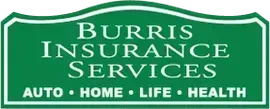Understanding Medicare reimbursement can feel like traversing a maze. It's no wonder that many Medicare beneficiaries find themselves overwhelmed by the complexities of reclaiming money spent on eligible medical expenses. Yet, familiarizing yourself with the reimbursement process is crucial to ensuring you don't miss out on recouping costs for approved healthcare services and medications.
What is Medicare Reimbursement?
Medicare reimbursement is a process that allows beneficiaries to reclaim some of their out-of-pocket expenses for covered healthcare services and medications. Often, this reimbursement applies to situations where the beneficiary has paid the full amount upfront, as opposed to their designated share. By understanding the reimbursement process, you can more easily manage healthcare expenses by ensuring you're making full use of your Medicare benefits.
Claiming Your Medicare Reimbursement
Medicare Advantage (Part C)
If you have a Medicare Advantage plan, you might find yourself needing to claim reimbursements for services received outside your network. In such cases, contact your insurance provider to procure the necessary forms and fully understand the claiming process. Each provider may have varying procedures, so clear guidance from your plan's administrator is key to successfully reclaiming your expenses.
Medicare Part D (Prescription Drug Plan)
For prescription medications, Medicare Part D allows you to claim reimbursement when dealing with out-of-network pharmacies or incorrect billing. To initiate this, you'll need to submit a coverage determination request to your Part D sponsor. Gathering the correct documentation is essential to effectively navigating this process, which can also alleviate the financial pressure of out-of-pocket costs for medications.
Original Medicare (Part A & Part B)
Beneficiaries using Original Medicare may sometimes encounter situations where their healthcare provider does not bill Medicare directly, requiring them to pay the full cost upfront. To claim reimbursement, you'll need to submit Form CMS-1490S alongside an itemized bill from the provider and a written explanation of your claim. This documentation is crucial for the timely processing of your reimbursement.
While the Medicare reimbursement process may initially seem daunting, having the right information can make all the difference. By being proactive in gathering necessary paperwork and seeking assistance when needed, beneficiaries can effectively recoup eligible healthcare expenses, easing the financial load. Don't hesitate to consult your Medicare plan administrator or a healthcare advisor for guidance tailored to your specific needs.
